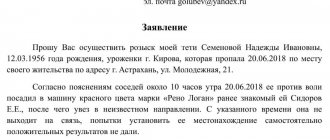Recently, such a violation as child abduction has become more and more common. It's no secret that kidnapping itself is a common phenomenon. And it is done with some motive. Previously, this violation was widespread in relation to adults, but now the matter has affected children. Yes, babies have also been kidnapped before, but not so often. What is the punishment for committing an act? What kind of punishment should I expect? And in general, why do they kidnap people (children, in particular)? There must be some motive for this violation. In general, the reasons may be different. And even the Hague Convention, which protects the rights of children, is not able to stop the kidnappers.
What is kidnapping?
But what kind of action are we talking about? It is not always possible to fully understand what exactly and what punishment will be imposed. Abduction is the removal of a person from his usual way of life. Moreover, it was violent, committed against one’s will. Accompanied by subsequent detention of the citizen outside the home.
The abduction of a child or adult can be accomplished through the use of violence, threats, deception or any other trick. If a person himself wants to disappear and no one is holding him against his will in one place or another, then a violation cannot be considered as such. This is no longer a kidnapping.
Usually there is a specific motive for an act committed. It could be anything. As a rule, kidnapping requires the relatives of the kidnapped person to take some action against the kidnappers. For profit's sake. Why do kidnappings happen so often? Why are they made specifically?
Kinds
Conventionally, kidnapping can be divided into types according to the purpose of kidnapping:
- receiving material rewards;
- family squabbles - when one parent kidnaps a child from another;
- personal or professional revenge;
- sale of children to childless families or for donor purposes;
- sexual violence;
- terrorist component.
Unfortunately, the statistics are such that if a kidnapped person is not found in the first 2-3 days, then the likelihood that he will be found alive becomes less and less. There is also no guarantee of a person’s release, even if the demands of the kidnappers are satisfied in full and in a timely manner.
Motives and goals
As already mentioned, the abduction of a child (or an adult) is purposeful. Almost always this action is performed for selfish purposes, for profit. But what is most common in practice?
Theft may be carried out for subsequent resale of the citizen. Human trafficking is widespread underground in many countries. So that no one looks for or suspects the sellers, they are engaged in kidnappings. Even the Hague Convention is not a threat to kidnappers. She is known to protect the rights of people, and children in particular.
In addition, there is the receipt of material or property benefits from relatives (parents, friends, family members, acquaintances) of the abducted person. In this case, the kidnappers make certain demands for the release of the captive. The most common crime is kidnapping for ransom. They demand a certain amount of money to return a person. This is perhaps the most common case.
Next is the extraction of any intangible benefit. For example, the abduction of a child may be committed with the aim of demanding the resignation of parents from certain positions. Intangible benefits are also not so rare. Therefore, you shouldn’t be surprised. It is usually combined with a ransom.
Another option is not so much human trafficking as the sale of a child to potential new parents. Very often, such abductions occur in relation to newborn children or very young children. People who are unable to have a child in principle, or those who have lost one, as well as those who are unable to give birth to a healthy person, are willing to pay for the adoption of a newborn. Or just a healthy baby. Therefore, sometimes the abduction of a child has a motive for resale, but hidden. Prospective guardians pay kidnappers for, say, adoption fees, but have no idea that the baby has been kidnapped.
Basic but important things
There is an opportunity for crime prevention to be accessible to everyone, and kidnapping is no exception. What is this? Usual caution! The victims of kidnappers are often children who ignore the simplest safety rules. Try to talk with your child about basic but very important things:
- You cannot talk on the street with strangers.
- You should not take gifts from strangers from adults.
- You can't go anywhere with strangers.
- In case of danger, the child should not shout “Help!” (this is often perceived by others as an ordinary family quarrel), and “This is not my father! I do not know this person!".
- If a child is being chased, he should run not into a dark gateway or the first entrance he comes across, but to a public, crowded place: a store, a cafe, a bus stop.
Is it punishable
In any case, whatever the motive for the crime, responsibility for the abduction of a child (and a person in general) in Russia and other countries is mandatory. If the kidnappers were caught. Otherwise, a thorough investigation is conducted until the criminals are caught.
In general, it is quite difficult to answer what the punishment is for kidnapping a child in Russia. The court considers each situation separately. And many factors are taken into account. But you can be sure: there will definitely be punishment. After all, crimes against human freedom are punished seriously. As soon as we are talking about children, and even more so.
If you look at Russian legislation, then the abduction of a child is Article 126 of the Criminal Code of the Russian Federation. More precisely, it talks about what punishment is imposed in principle for theft of a person. There is a separate paragraph relating to children and women.
Kidnapping: what is it and how to protect yourself?
There are many preventive ways to protect a child. Their practical implementation, of course, depends on the social status and material well-being of the parents. The main methods of protection against kidnapping can be grouped into six positions:
- Hire an escort group or bodyguard (the most expensive, but most effective way).
- Hire a tutor or governess.
- Constant support from parents.
- Accompaniment by relatives, friends, acquaintances.
- Moving in an organized group of children.
- Technical tracking tools (for example, your child should have a phone with a GPS module and a program that tells you where the child is).
But at the same time, we should not forget about basic preventive measures if there is the slightest suspicion of possible kidnapping.
Standard
It does not matter for what purpose the crime was committed. If the kidnapping took place, then it will be punished accordingly. The first case in modern Russian legislation is the most common offense that occurs against an adult citizen.
Thus, for kidnapping a person is punishable by forced labor for a maximum of 5 years or imprisonment. For how long? For a similar one - a maximum of 5 years. Serious punishment, if you think about it. Only this is a case of kidnapping an adult citizen by one person. When it comes to children, the penalties are more severe.
Corpus delicti
As a rule, such a crime includes 3 main components:
- capture, that is, direct theft;
- moving;
- holding against a person's will.
There is not always a capture in this scheme. Criminals can arrange the situation in such a way that the victim himself arrives at the place of his subsequent detention.
For example: a wife is informed that her husband is out of town, he was in an accident and urgently needs help. The woman goes to the specified coordinates, where criminals are already waiting for her. But even such a situation will not be considered as a mitigating circumstance.
The object of the crime is human freedom. The optional subject is his life and health, both physical and psychological.
The crime will be considered completed at the moment of capture of a person or his illegal detention, if the victim himself arrives at the place of the criminals.
The subject of the crime in this case is a person 16 years of age or older. It should be noted that in this case the criminal’s guilt will always be recognized as intentional, since it is impossible to accidentally kidnap and hold a person.
We agreed
But first, one more situation. We are talking about a preliminary conspiracy of several persons. As a rule, the abduction of a child or person is, in principle, a rather difficult process. And few people do it alone. Especially when a crime is committed for the purpose of obtaining ransom.
What will happen in Russia for conspiracy followed by kidnapping? Forced labor is already losing its power. But imprisonment appears again. But the period is increasing. It can now be set between 5 and 12 years. Depending on the specific case. Additionally, conspiracy is punishable by restriction of freedom after imprisonment for a maximum of 2 years. But you can do without such a measure. In practice, this is what usually happens.
The difference between kidnapping and hostage taking
Hostage taking, a crime regulated by Article 206 of the Criminal Code of the Russian Federation, should be distinguished from kidnapping.
These compounds have several overlapping characteristics, so sometimes it is difficult to distinguish between them. However, these are different crimes. First of all, they differ in the main objects: when taking a hostage, it is public safety; when kidnapping, it is personal freedom.
By nature of action:
- The taking of a hostage is demonstrative in nature, since the criminals report the fact of the taking to official bodies and the media.
- The kidnapping of a person, as a rule, occurs secretly, and the criminals only inform the relatives of the kidnapped person, especially if they demand a ransom.
Kidnapping is associated in all cases with the movement of the victim from the place where he was located to another place, and hostage taking usually involves the forcible detainment of a person or group of persons at their location (in transport, public or office premises, one’s own apartment, etc. .).
Hostage taking involves the presentation of certain demands to an organization, state or third parties; Kidnapping can be carried out without presenting any requirements.
The goal of the kidnapper is to deprive the victim of his freedom for some personal reason (jealousy, ransom, revenge, etc.). The goal of the hostage taker is to achieve satisfaction of the put forward demands.
So, kidnapping, or kidnapping, is a crime, liability for which is regulated by the rules of Article 126 of the Criminal Code.
Here are the measures of responsibility for this unlawful act, depending on the qualifications of the actions committed.
Children
Also, criminal liability for child abduction comes after the perpetrators are caught. But what exactly is the punishment for this? To be honest, an offense committed against minor children is equivalent to the same act of conspiracy.
It turns out that the punishment will be similar. Each kidnapper can be imprisoned for a maximum of 12 years, as well as additional restrictions on freedom. In practice, the term of imprisonment is set as a maximum. After all, the rights and freedoms of children are protected very actively in Russia.
Movies about kidnapping
Kidnapping is a favorite plot of thriller creators on paper and on screen. Kidnapping is a situation that will keep even the most spoiled book lover or movie fan on edge. Reading books and watching films about kidnapping is not only an interesting, but also an educational pastime. Here are some films based on kidnapping:
- Captive (2013)
- Alarm Call (2013)
- Captives (2013)
- Kidnapping (2003)
- Stone (2011)
- Hostage (three parts 2007, 2012, 2014)
- Wrath (2004)
- The Chase (2011)
- Ransom (2007)
- Along Came a Spider (2001)
- 24 hours (2002) and others.
Groups
Kidnapping (kidnapping, in other words) can be carried out by a certain organized group. It does not matter in relation to whom exactly it was carried out: just an adult or a child. Russian legislation provides for special measures for such an offense.
It is worth noting right away that a restriction of freedom may be imposed. The term should already be clear - 2 years. This is the limit for any type of kidnapping. In addition, prison arrest will be imposed on the kidnappers. Here his term increases to 12 years. The minimum increases to 6. If the kidnapping was committed against children or women, you can count on capital punishment. These are the decisions that judicial practice demonstrates to us.
Criminal legal characteristics
What is kidnapping?
Kidnapping is an action involving the capture, movement, or detainment of a person.
Every citizen living in a state is potentially free. This freedom, among other things, implies the possibility of independently determining the place of one’s stay and residence.
An adult capable person can move only at his own request .
Violation of this condition, which results in the forced capture of a person, is regarded as kidnapping from the point of view of the law.
Death
Sometimes it may happen that during the abduction of a child or adult, his death will follow. Or great (severe) harm will be caused to health. In this situation, the thieves will face quite serious punishment.
But we are already familiar with him. The thing is that paragraph 3 of Article 126 of the Criminal Code of the Russian Federation indicates that such acts are punished in the same way as a crime committed by an organized group. It turns out that for the death of a child during a kidnapping, violators can be put behind bars for 6-15 years. And after release, impose up to 2 years of restriction of freedom.
In reality, everything is much more serious. For the abduction of children, if the culprits have been found, the violator is additionally deprived of his work position (applied to social workers and citizens who help adopt stolen children) with a subsequent ban on conducting certain activities. In addition, kidnapping itself is rare in its pure form. And violators are tried simultaneously under several articles. This means that the punishment will be more severe.
Family kidnapping: why is it impossible to punish parental kidnappers in Russia?
Was there any kidnapping?
For eleven years now, Olga Slutsker, the ex-wife of Senator Vladimir Slutsker, has not seen her children.
In 2009, the husband filed for divorce and took his son and daughter. The trial lasted several years, all this time the woman sought at least a meeting with Misha and Anya, but each time she saw a closed door instead of her children. Now the grown-up children live with their father in another country, and the case that thundered throughout the country has not changed the situation with family kidnapping. Every year, hundreds of children are abducted by one of their parents and lose contact with their father or mother. An injured parent can go through the courts for years, win them, file appeals and also win them, but this does not guarantee that the child will be returned back. One of the main reasons is that de jure family kidnapping does not exist in Russia. “The concept of family kidnapping, indeed, is absent in the legislation of the Russian Federation. This makes it difficult to regulate relations between conflicting parents, each of whom claims to raise a child independently,” says Ekaterina Tyagay, partner and head of the Sensitive Matters practice at the Pen & Paper bar association.
In addition, as noted by lawyer, partner of BGP Litigation, president of the Lawyers Help Children Foundation, Victoria Dergunova, the Russian model of family law regulation is built on the principle of equality of parental rights and responsibilities. That is, the court decision that determines the child’s place of residence or the order of communication with him does not actually affect this equality. “Therefore, in such situations, it is impossible to apply criminal law to a parent, for example, for kidnapping, since a parent cannot kidnap his own child. He just doesn’t comply with the court’s decision and, oddly enough, he also cannot be held accountable for failure to comply with a judicial act,” explains Victoria Dergunova.
Regular failure to comply with court decisions of abductive parents numbers in the hundreds, and only dozens of victimized mothers and fathers succeed in seeking justice. As experts note, due to the lack of legal norms on family kidnapping, the problem has become complex.
Find vs return
As a rule, once the abducting parent takes the child, he moves with him from place to place and hides his location, both from the other parent and from law enforcement agencies. If the “kidnapper” and the child are discovered, the search case is transferred to the region of their current location for enforcement actions. However, this takes some time, and in addition, the procedure for handing over the child itself complicates the situation.
“The mandatory personal presence of the parent, as well as a specialist from the guardianship and trusteeship authority, and sometimes a psychologist, is required. The bailiff notifies the specified persons and the parent in advance about the assigned enforcement actions, which, firstly, complicates a prompt response, and secondly, gives the parent time and the opportunity to once again change their place of residence and travel with the child to another city, since there are no restrictions on movement for this period (from the moment of discovery until the moment of transfer of the child) is not imposed on it. This can go on forever,” says Victoria Dergunova.
The lack of effective mechanisms for searching for children and abducting parents makes it possible to hide the whereabouts of a child for a long time, notes Ilya Titov, senior partner of the Q&A law office. According to the lawyer, the only effective way to start searching for a displaced child is to file a missing person’s report indicating fears for his life. However, establishing the whereabouts of a child does not guarantee the execution of a judicial act.
Moreover, the child can be taken abroad. Ekaterina Tyagai notes that when fighting international family kidnapping, the mechanisms provided for by the Convention on the Civil Aspects of International Child Abduction are used. However, from the point of view of a lawyer, both the legal regulation of the Russian Federation and international approaches to solving the problem are imperfect, which makes it difficult to enforce court decisions in these cases.
One of the main problems that significantly complicates matters of family kidnapping is the psychological state of the child. It is affected by regular moves, lack of permanent residence, dependence on a single parent and inability to protect one's rights. According to Victoria Dergunova, this could be called psychological violence, but this is not what influences the development of the proceedings.
“If a child is taken from a parent at a young age and their forced separation lasts for years, then not only is their emotional connection severed, the child’s memory of the other parent is often erased. While he seeks justice, tries to find the child and fulfill the court’s decision, when he meets him, the latter considers him a stranger. Therefore, the decision may become unenforceable precisely because of the child’s own opinion,” the expert believes.
Ilya Titov also emphasizes that this is exactly what a parent seeks when separating a child from his ex-spouse. “Unfortunately, long delays in finding a child and implementing decisions lead to a deterioration in the existing parent-child relationship. In these situations, the parent who is less interested in developing a positive attitude towards both parents always wins,” says the lawyer.
For example, it was the factor of emotional attachment that put the final point in the epic litigation between spouses X and Y in the fight for their son, Victoria Dergunova gives an example. The woman won the case in the first instance: the Russian court ruled that it was better for the child to stay with his mother. However, the father did not comply with the decision, which is why X did not see his son for four years. Then she decided to file a complaint with the Strasbourg court. The ECtHR recognized that time is a key factor in this story. After four years, the mother was not sure whether her son was depicted in the photographs provided to her. The court tried to help restore the lost connection through regular meetings between mother and son with the participation of a psychologist, but even after them the child was not ready to live together with her.
“A similar situation arose in the Zelenevs v. Russia case: the established lack of contact between mother and child became the basis for issuing a new judicial act - a decision to determine the child’s place of residence with his father,” says Victoria Dergunova.
The result of passivity
A classic situation: the injured parent filed a lawsuit and won. In this case, bailiffs can help return the child to him, but often their capabilities in such situations are extremely limited. The FSSP becomes another stumbling block in cases of family kidnapping, this is confirmed by statistics. For example, in 2022, out of 752 enforcement proceedings in connection with non-execution of court decisions on determining the place of residence of children, only 54 were completed by voluntary execution.
As Victoria Dergunova explains, this is due to the fact that bailiffs do not have the right to physically influence the child in any way for the purpose of handing him over to the claimant (parent). That is, they cannot “take away” the child, although this is often how the operative part of the decision is formulated.
“During enforcement actions, representatives of the guardianship and trusteeship authorities, as well as the parent himself, to whom the child should be transferred, must be present. So, if it is discovered, the bailiff cannot immediately pick it up for the purpose of transferring it, for example, to the guardianship and trusteeship authorities and subsequent transfer to the parent, since the guardianship and trusteeship authorities refer to their lack of obligation to accept and place a child who is on the executive wanted list. , while the parent gets to him, which is especially critical, for example, in cases when we are talking about finding a child in another region,” the lawyer notes.
Ilya Titov names a lack of authority among the factors for the ineffectiveness of the work of bailiffs, including the inability to enter private territory or housing. The expert also notes subjective reasons - low salaries, insufficient qualifications, meager fines for failure to comply with the requirements of bailiffs. “The problem of FSSP passivity really exists. According to official reporting data posted on the FSSP website, in 2022, 109,000 search cases were opened, of which only 139 cases involved the search for a child. I believe this is explained by the overall colossal burden on the FSSP - the total number of enforcement proceedings for 2020 amounted to 110,872,811,” adds Ekaterina Tyagai.
The weak effectiveness of judicial decisions is also associated with the small liability that threatens the abducting parent. “Currently, violation of Part 2 of Article 5.35 of the Code of Administrative Offenses of the Russian Federation (Failure of parents or other legal representatives of minors to fulfill obligations for the maintenance and upbringing of minors) entails a fine of two to three thousand rubles, and a repeated violation – a fine of four to five thousand rubles or administrative arrest up to five days. Considering the urgency of the issue, it is obvious that the norm does not perform a preventive function,” says Ekaterina Tyagai.
Victoria Dergunova agrees that the administrative fine is insufficient. According to her observations, in practice, administrative arrest is not applied to the parent who is caring for the child, even if he is actually there illegally, due to non-execution of a judicial act. “For failure to comply with a judicial act, he also cannot be held criminally liable, because this is not provided for by the disposition of Article 315 of the Criminal Code of the Russian Federation (Failure to comply with a court sentence, court decision or other judicial act). I know that there are cases when a parent was prosecuted for arbitrariness, but such cases are rare throughout the country and represent an exception rather than a way to effectively combat such abuse of parental rights,” says Victoria Dergunova.
What to do?
Due to the multifaceted nature of the problem, its solution, according to experts, must also be systemic and require many changes in legislation. “There is a need for clear and working mechanisms for executing court decisions and holding people accountable for their non-execution. Special interim measures should also be applied that prohibit the transfer of the child until the end of the proceedings with liability for violation of such measures. It is also necessary to introduce rules on the possibility of transferring a child to another parent if the first one ignores the requirements of judicial acts,” believes Ilya Titov.
From the point of view of Victoria Dergunova, changes should be made at three levels. Firstly, to introduce criminal liability for failure to comply with a judicial act on the upbringing of a child, if the parent has previously been brought to administrative responsibility for this act. Secondly, it is necessary to improve the mechanism for the enforcement search of a child when he is discovered, but cannot be immediately transferred to the recovering parent in enforcement proceedings. Thirdly, it is necessary to tighten the requirements put forward for the executive search of a child, by analogy with the requirements put forward for the criminal investigation procedure. According to the lawyer, this will expand the powers of the competent authorities.
Ekaterina Tyagay believes that first of all it is necessary to give a legislative definition of family kidnapping, including identifying who is the subject of such violations and providing for real responsibility for it. Also, from the point of view of a lawyer, in Russia it is necessary to create a special law enforcement agency that would focus on activities to search for children and fulfill requests from the central authorized body.
In 2022, the Ministry of Justice of the Russian Federation published for public discussion a bill establishing criminal liability for failure to comply with a judicial act on the removal (transfer) of a child. According to the document, Article 315 of the Criminal Code of the Russian Federation will provide for criminal liability for failure to comply with a court decision that has entered into force. Perhaps this means that the problem of family kidnapping in Russia will gradually be overcome. However, what should a parent whose child has been stolen right now and his lawyers do? Victoria Dergunova offers a clear list of actions for this:
- If there is no court decision, immediately contact the court with an appropriate claim and an application for interim measures in the case.
- Make a list of places where the child can be and drive to the addresses.
- Contact the police and file a request to put the child on the wanted list and establish his whereabouts, providing details of what happened: where, with whom, under what circumstances and when the child was last seen. If it is not known exactly who, when and where the child was taken, you should write an application for an inspection under Article 126 of the Criminal Code of the Russian Federation.
- Do not neglect social networks and post information on the search for a child and requests for help in establishing his whereabouts and providing contact information.
- After receiving a court decision to determine the child’s place of residence (ruling on interim measures), obtain a writ of execution and present it to the bailiff service to initiate enforcement proceedings and take measures to find the debtor.
- If there is a suspicion that the child may have been taken to another country, then you should contact the central authority of the suspected state where the child may have been removed (effectively, if both countries have mutually accepted the Hague Convention).
Ilya Titov adds that in fact, all the mechanisms that parents have today can hardly be called working. So his main recommendation in such matters is not to give up.
Image source: Ba Phi/ Pexels
How to prevent a missing child
• Convince that you cannot run away. Hiding away from home - in the forest or in a foreign city on an excursion - too. • Give your child a simple cell phone and provide shortcut keys. A phone - because its battery charge lasts longer, besides there are fewer temptations - games, and it is not so attractive to thieves and robbers. You can also use a GPS tracker. • Whenever your child deviates from the planned route, he should call you. Do not scold for such deviations, otherwise the child will hide them; it is better to convince them - establish contact. GPS tracking services will also help. • The child should not go alone into gateways or secluded places, should not go to other people’s apartments and houses, or get into cars. Should not correspond online with adults. • The child should not accept gifts from strangers and should not exchange anything with them. Even a stranger of the same age can be a trap from adults. • Your child should immediately tell you about any contact with strangers. This is your task, do not hesitate to call again or ask questions at home in the evening. But not every 5 minutes, have a conscience and a sense of proportion - don’t get bored with guardianship, look for a middle ground. For example, if a child does not want you to call him often, let him call you himself, as mentioned above.
One of the results of trusting a stranger
What to do if a person is kidnapped
Often the fact that a person has been kidnapped, that is, a crime has taken place under Art. 126 of the Criminal Code of the Russian Federation, it is almost impossible to establish initially. It is possible to correctly assess the act of the perpetrator under this article after all the circumstances have been established.
We can talk about signs
Most often, all that is immediately clear is that the person has disappeared, is not in contact, or something happened to him. And to establish how this happened is a task for law enforcement officials.
Where to go
Reports of missing persons or, as law enforcement officials call it, missing persons, are submitted to the police department . It would be better if it was a department in the place from which the victim disappeared. The possibility of submitting an application to any police department is not excluded.
There are no reasons why an application may not be accepted. The interdepartmental instructions on this issue indicate that such messages are accepted and registered regardless of how long ago, where the person disappeared, the availability of information about the place of residence, the completeness of personal data, photos, or information about previous cases of disappearance.
Conducting checks and investigating criminal cases of kidnapping falls within the competence of investigators of the Investigative Committee - the Investigative Committee, therefore a statement about the disappearance of a person can be written to its territorial department.
How to write an application correctly
The application for kidnapping is addressed to the head of the police department to which the applicant is applying, and contact information is indicated. It is drawn up in a simple form; there are no special requirements for the content of such an appeal. The main thing is to describe the event that became the basis for the appeal, to state a request to search for the missing person.
Information boards in police department control rooms usually contain examples of the most common statements.
The application to the Investigative Committee is drawn up in the same way, only it is addressed to the head of the territorial department of the Investigative Committee.
What happens after you submit your application?
After registering such a message, the applicant is asked a number of questions, the purpose of which is to restore the circumstances of the person’s disappearance and to understand whether they indicate a crime. This is necessary to put forward versions of the loss.
If the established circumstances of a person’s disappearance indicate that he has been kidnapped, a report of an unknown disappearance received by the police department is transferred to the territorial division of the Investigative Committee (IC) for conducting a pre-investigation check and subsequently making a procedural decision.
An exchange of information has been established between the Investigative Committee and the police on the unknown disappearance of citizens. We can say that investigators of the Investigative Committee carry out procedural checks and investigate criminal cases, collecting evidence, and police officers accompany the inspection and investigation of the case, carrying out operational search activities.
Based on the results of the check, if there is sufficient information that the victim was abducted, the investigator of the Investigative Committee initiates a criminal case; if there is no or insufficient information, he refuses to initiate it. You can file a complaint against this decision with the head of the investigator, the prosecutor or the court.
Despite the decision made based on the results of the inspection, if the missing person has not been found, the search for him continues by the police during operational search activities.







